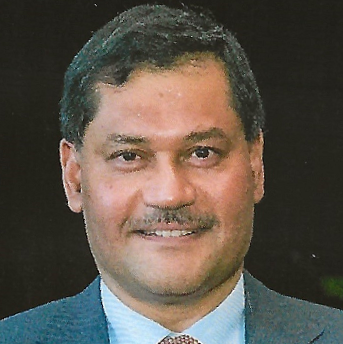Keynote Speakers
Professor Inge Molenaar (Radboud University, Netherlands)

Human-AI collaboration in Education: the Hybrid Future
In her keynote address, Inge Molenaar will explore the role of artificial intelligence in education, emphasizing the potential for hybrid human-AI collaboration. At the heart of effective education is the goal of fostering student learning and talent development. To achieve this, it is essential to bridge scientific insights on learning and teaching with the capabilities offered by AI.
Molenaar will highlight the dual role of AI—as both a tool and an actor—in the evolving landscape of learning analytics. Current research, particularly from her Self-Regulated Learning Multimodal Data Analysis (SMA) grid, reveals that AI is underutilized in understanding learning processes. Additionally, a significant gap exists in the application of learning theories within educational technologies, with only 50% of learner-facing solutions and 33% of teacher-facing solutions grounded in these theories, indicating substantial room for improvement.
In her talk, Molenaar will contrast the replacement and augmentation perspectives and address their views on AI automation and teacher and learner autonomy. Through compelling examples, she will illustrate how AI in education can lead to human replacement, complementation, and augmentation.
Moreover, she will propose an innovative approach to investigate the complex interplay among AI, teachers, and students, providing a practical framework for integrating AI’s dual role with established scientific understanding of learning and teaching. This alignment may help to cultivate responsible educational practices that empower students to realize their full potential and our field to progress.
Bio:
Inge Molenaar is the Director of the National Education Lab AI (NOLAI) and a Professor of Education and Artificial Intelligence at the Behavioural Science Institute, Radboud University, Netherlands. With over 20 years of experience in technology-enhanced learning, she has successfully navigated roles ranging from entrepreneur to academic.
Dr. Molenaar's research focuses on innovative, technology-empowered approaches to optimize human learning and teaching. Central to her work is the application of data, learning analytics, and artificial intelligence to understand the dynamics of learning over time.
Envisioning Hybrid Human-AI Learning Technologies, Dr. Molenaar aims to augment human intelligence with artificial intelligence, empowering both learners and educators to make education more efficient, effective, and responsive to individual needs. Her research group, the Adaptive Learning Lab, investigates how self-regulated learning can be supported through technology. At the National Education Lab AI, she develops new educational practices using AI and explores the responsible use of AI in education.
She is a recipient of several prestigious grants, including an ERC Starting Grant and funding for the National AI and Education Lab (NOLAI) and holds Master's degrees in Cognitive Psychology and International Business Studies, as well as a PhD in Educational Sciences from the University of Amsterdam.
Professor Gautam Biswas (Vanderbilt University, United States)

Harnessing Multimodal Analytics in the Classroom to Understand Students’ Collaborative Learning Behaviors
As part of the NSF AI Institute, ENGAGE AI, our research group has focused on multimodal learning analytics to study student collaboration and learning in science classrooms. This research addresses significant challenges, such as reliably collecting and aligning video, speech, and computer log data in classroom environments, using machine learning algorithms for real-time analysis, and inferring students' learning, engagement, and collaborative behaviors.
In this talk, I will present systematic approaches based on self-regulated learning (SRL) and socially shared regulation of learning (SSRL) frameworks to analyze and interpret students' collaborative behaviors in STEM environments. We employ a multi-step human-in-the-loop framework to interpret multimodal behavior, collaborating with learning sciences and education researchers to develop temporal representations for visualizing and interpreting key learning events. The derived interaction patterns train machine learning algorithms to identify similar patterns over extended learning episodes, enhancing our understanding of students' learning and problem-solving behaviors.
As a next step, we are working with classroom teachers to design chatbots that leverage multimodal patterns to identify student difficulties and provide conversational feedback to support collaboration and learning. I will discuss the design, development, and deployment of our multimodal learning analytics framework, its application in STEM+C collaborative learning environments, the design and analysis of chatbots, and results from our classroom studies. Additionally, I will explore future research directions and the ethical considerations of collecting and analyzing multimodal data in classrooms.
Bio:
Gautam Biswas is a Cornelius Vanderbilt Professor of Engineering at Vanderbilt University, specializing in AI and Machine Learning. His research focuses on developing intelligent, open-ended learning environments for STEM and CS education. He hasdevloped innovative learning analytics and data mining techniques to study students' learning behaviors and their links to metacognitive and self-regulated learning strategies. Recently, he has been analyzing multimodal data from augmented reality training environments to assess individual and team performance. His research has been funded by the Army, Navy, NASA, NSF, DARPA, and the US Department of Education. He has over 700 refereed publications to his name. Currently, Prof. Biswas is a co-PI at the NSF AI Institute for Engaged Learning (ENGAGE AI) and the IES GenAI Center (GENIUS) for STEM education.
Interactive Panel - Learning Analytics 2035: Pushing the boundaries and meeting the challenges

Facilitated by: Rebecca Ferguson, Catherine Manly and Kirsty Kitto
This interactive panel will invite the learning analytics community to ponder the possible state of education in ten years’ time. Imagining our future state in 2035, we will explore some of the grand challenges that have been identified during events at LAK25, considering what might happen if these are addressed or ignored. The audience will be encouraged to question a panel of speakers representing researchers, teachers, policy makers, students and their family members, industry, and the broader community. Panel members will be challenged to respond to issues that arise from their projected decisions, navigating ethical dilemmas, moral vacuums, issues of data inaccessibility and socio-political interference.
